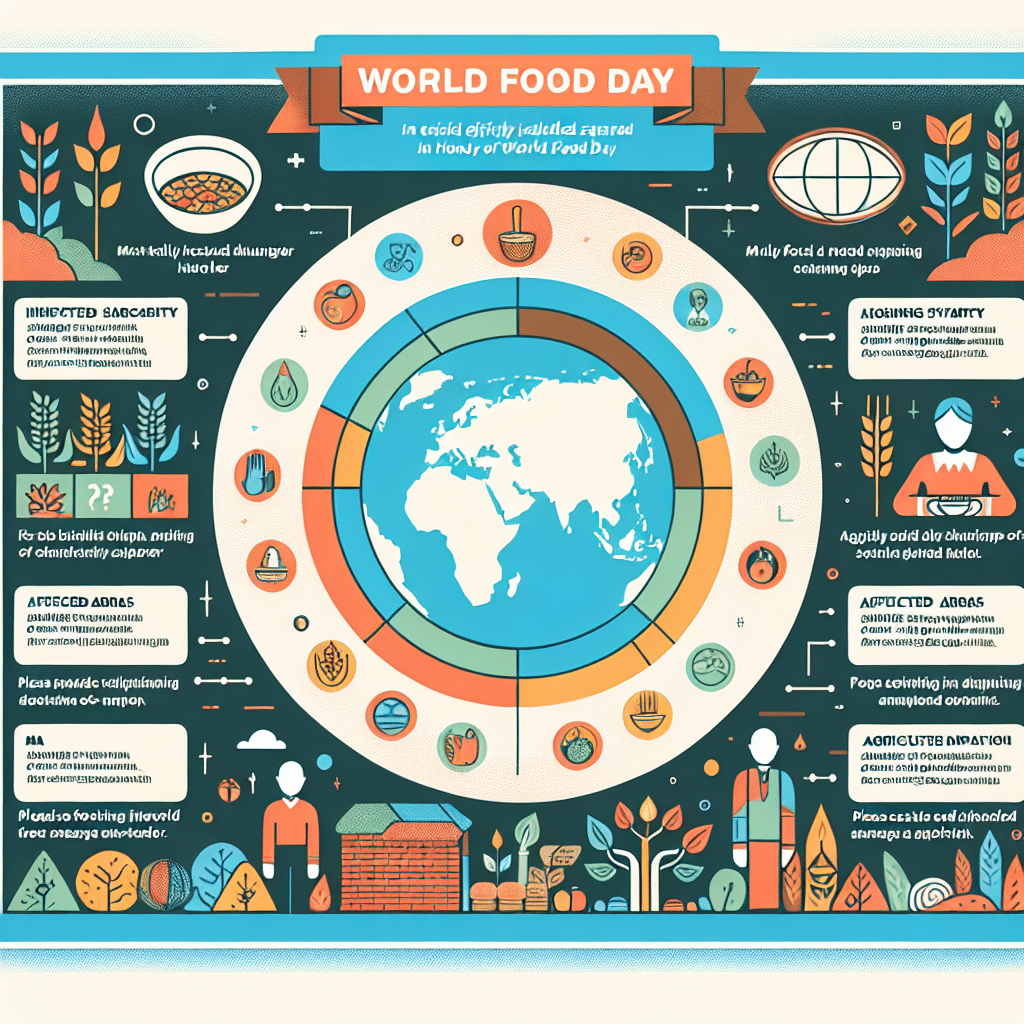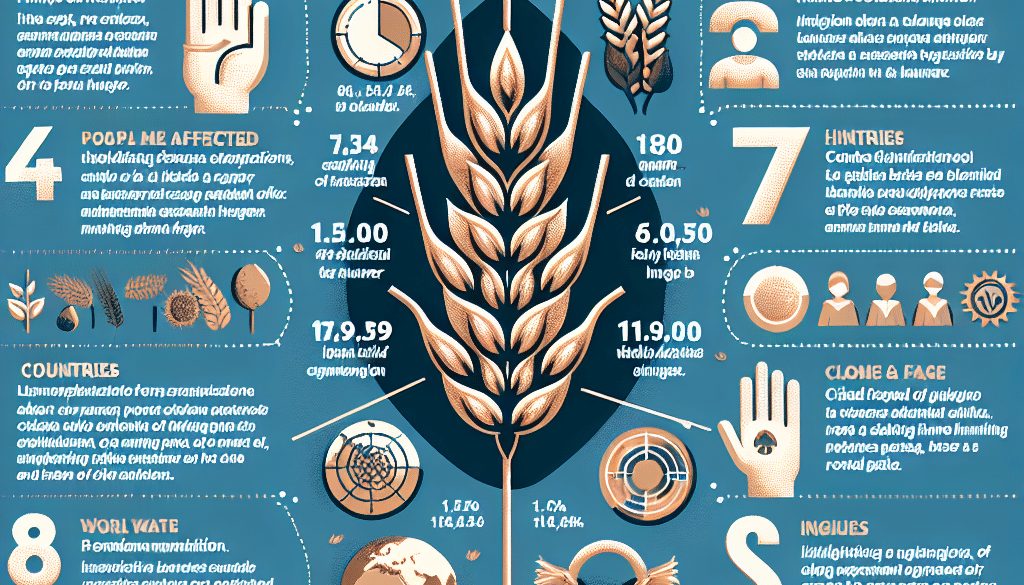Ten Facts You Need to Know About Hunger on World Food Day
-
Table of Contents
- Understanding Hunger: Top 10 Facts for World Food Day
- 1. Global Hunger Statistics
- 2. Children Are Disproportionately Affected
- 3. Hunger vs. Food Insecurity
- 4. The Double Burden of Malnutrition
- 5. The Impact of COVID-19 on Hunger
- 6. Conflict and Hunger
- 7. Climate Change and Food Security
- 8. Sustainable Agriculture and Hunger Reduction
- 9. The Role of Women in Combating Hunger
- 10. The Importance of Global Cooperation
- Conclusion
- Combat Hunger with ETprotein’s Nutritious Products
Understanding Hunger: Top 10 Facts for World Food Day

World Food Day is a time to reflect on the issues of global hunger and food insecurity. Despite living in an age of technological advancements and agricultural innovations, hunger remains a persistent problem affecting millions worldwide. In recognition of World Food Day, it’s crucial to spread awareness and understand the facts surrounding this global challenge. Here are ten essential facts you need to know about hunger.
1. Global Hunger Statistics
According to the United Nations, nearly 690 million people, or 8.9% of the world population, suffer from chronic undernourishment. This number has been slowly increasing in recent years, highlighting the need for urgent action to reverse this trend.
2. Children Are Disproportionately Affected
Children are especially vulnerable to the effects of hunger. Poor nutrition causes stunting in 144 million children under the age of five, which can lead to long-term developmental issues. Additionally, 47 million children suffer from wasting, a severe form of malnutrition that threatens their survival.
3. Hunger vs. Food Insecurity
While often used interchangeably, hunger and food insecurity are distinct concepts. Hunger refers to the physical sensation of needing food, whereas food insecurity describes a lack of consistent access to enough food for an active, healthy life. Both are critical issues that require different approaches to address effectively.
4. The Double Burden of Malnutrition
Many countries face the double burden of malnutrition, where undernutrition coexists with overweight and obesity. This paradox is a result of poor access to nutritious foods and an increase in the consumption of calorie-dense, nutrient-poor foods.
5. The Impact of COVID-19 on Hunger
The COVID-19 pandemic has exacerbated the hunger crisis. Disruptions in food supply chains, economic downturns, and job losses have increased food insecurity for millions. The World Food Programme warns that the pandemic could double the number of people facing acute hunger, pushing it to more than a quarter of a billion people.
6. Conflict and Hunger
Conflict is a leading cause of hunger, with 60% of the world’s hungry living in areas affected by war and violence. Displacement, destruction of agriculture, and economic turmoil contribute to the prevalence of hunger in these regions.
7. Climate Change and Food Security
Climate change poses a significant threat to food security. Extreme weather events, changing rainfall patterns, and rising temperatures affect crop yields and food production, making it harder for vulnerable populations to access sufficient food.
8. Sustainable Agriculture and Hunger Reduction
Investing in sustainable agriculture is key to reducing hunger. Practices that increase productivity while preserving natural resources can ensure a stable food supply and help lift communities out of food insecurity.
9. The Role of Women in Combating Hunger
Empowering women is crucial in the fight against hunger. Women play a central role in food production and family nutrition. Ensuring they have equal access to resources, education, and decision-making can significantly improve food security.
10. The Importance of Global Cooperation
Ending hunger requires global cooperation and commitment. International organizations, governments, and civil society must work together to address the root causes of hunger and implement long-term, sustainable solutions.
Conclusion
World Food Day serves as a reminder of the ongoing battle against hunger and the need for concerted efforts to ensure everyone has access to sufficient, nutritious food. By understanding these ten facts about hunger, we can better appreciate the scale of the challenge and the importance of taking action. It’s not just about feeding the hungry but also about nurturing a sustainable system that can end hunger for good.
Combat Hunger with ETprotein’s Nutritious Products
In the spirit of World Food Day, it’s important to recognize companies like ETprotein that contribute to the availability of nutritious food options. ETprotein’s range of organic bulk vegan proteins and L-(+)-Ergothioneine (EGT) products offer a sustainable and health-conscious choice for consumers and manufacturers alike. Their commitment to non-GMO, allergen-free, and high-purity ingredients supports the global effort to combat hunger and malnutrition.
About ETprotein:
ETprotein, a reputable protein and L-(+)-Ergothioneine (EGT) Chinese factory manufacturer and supplier, is renowned for producing, stocking, exporting, and delivering the highest quality organic bulk vegan proteins and L-(+)-Ergothioneine. They include Organic rice protein, clear rice protein, pea protein, clear pea protein, watermelon seed protein, pumpkin seed protein, sunflower seed protein, mung bean protein, peanut protein, and L-(+)-Ergothioneine EGT Pharmaceutical grade, L-(+)-Ergothioneine EGT food grade, L-(+)-Ergothioneine EGT cosmetic grade, L-(+)-Ergothioneine EGT reference grade and L-(+)-Ergothioneine EGT standard. Their offerings, characterized by a neutral taste, non-GMO, allergen-free attributes, with L-(+)-Ergothioneine purity over 98%, 99%, cater to a diverse range of industries. They serve nutraceutical, pharmaceutical, cosmeceutical, veterinary, as well as food and beverage finished product distributors, traders, and manufacturers across Europe, USA, Canada, Australia, Thailand, Japan, Korea, Brazil, and Chile, among others.
ETprotein specialization includes exporting and delivering tailor-made protein powder and finished nutritional supplements. Their extensive product range covers sectors like Food and Beverage, Sports Nutrition, Weight Management, Dietary Supplements, Health and Wellness Products, and Infant Formula, ensuring comprehensive solutions to meet all your protein needs.
As a trusted company by leading global food and beverage brands and Fortune 500 companies, ETprotein reinforces China’s reputation in the global arena. For more information or to sample their products, please contact them and email sales(at)ETprotein.com today.














